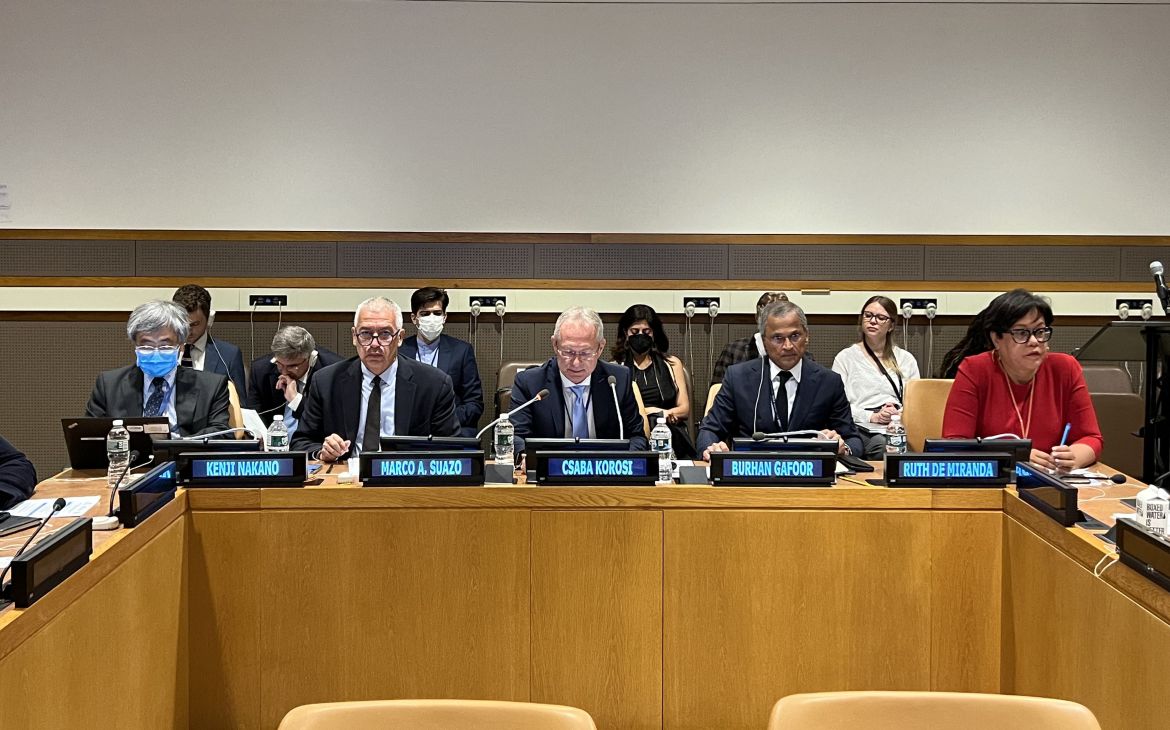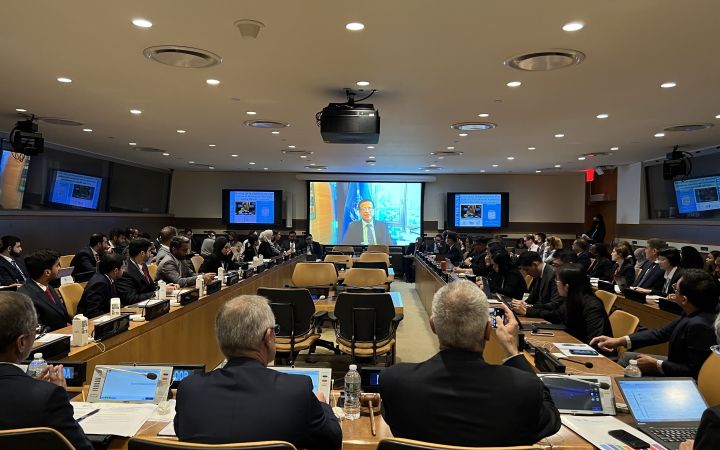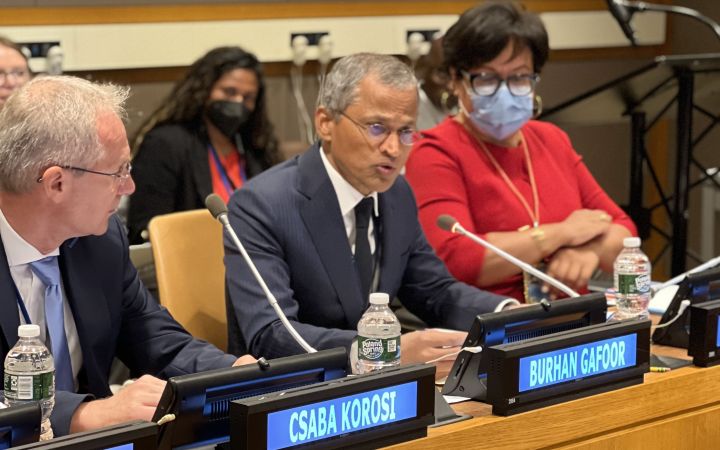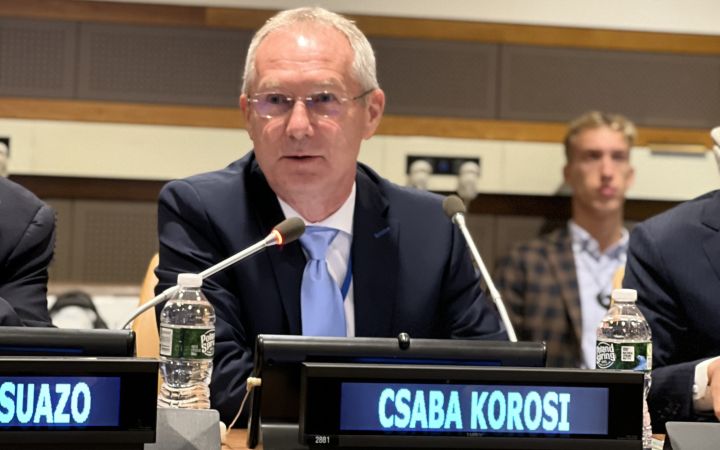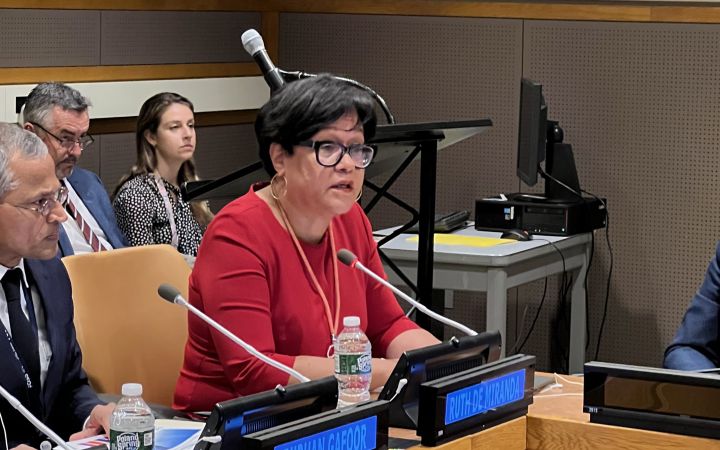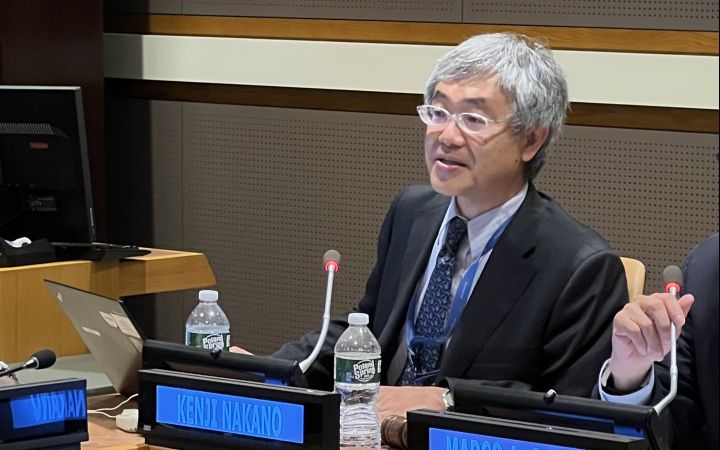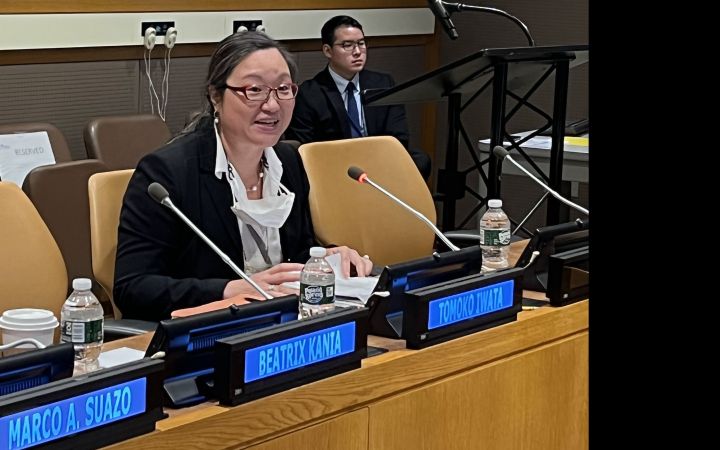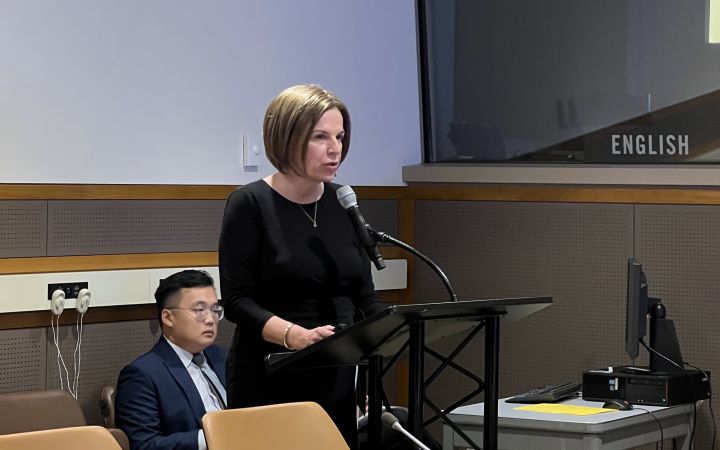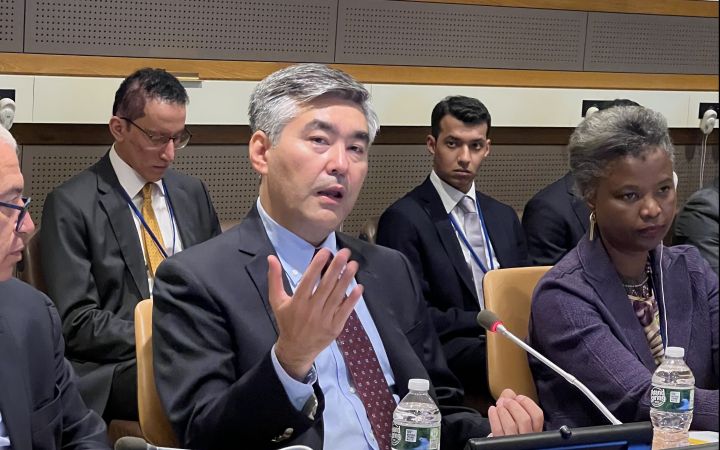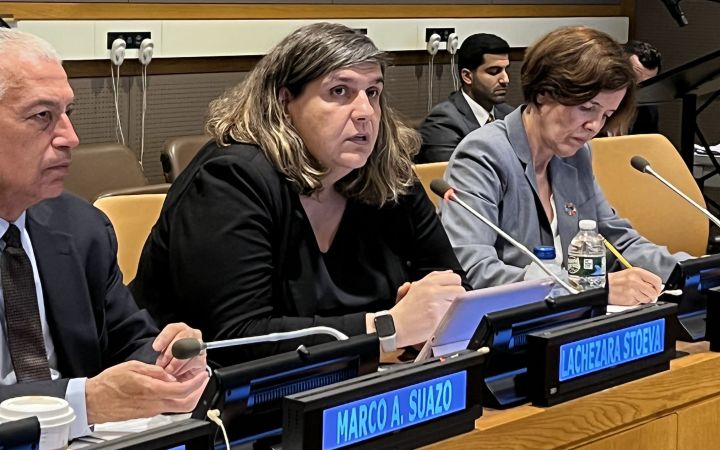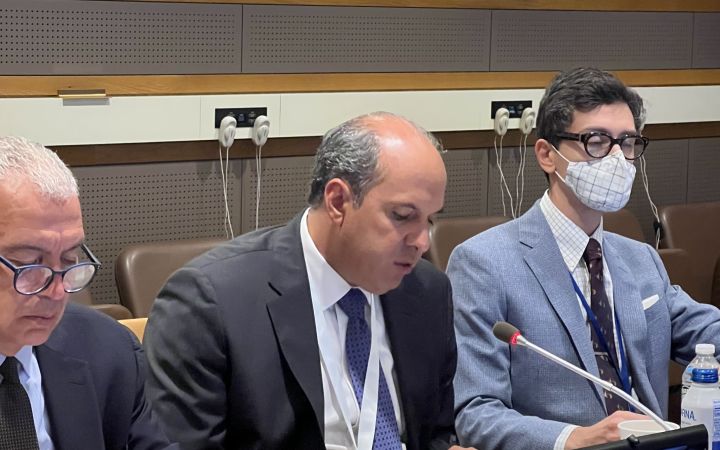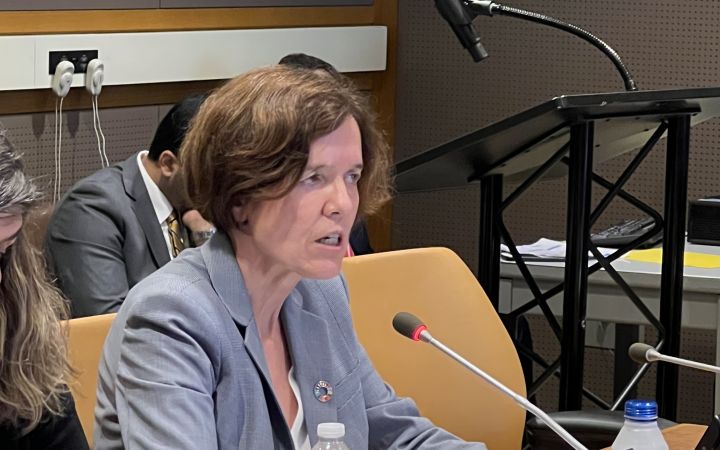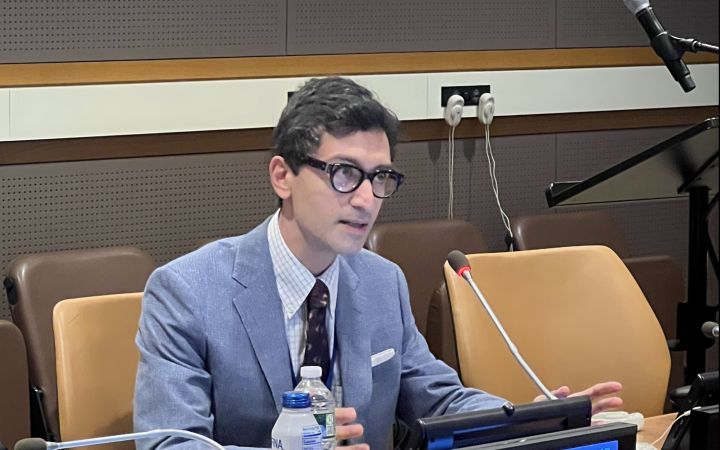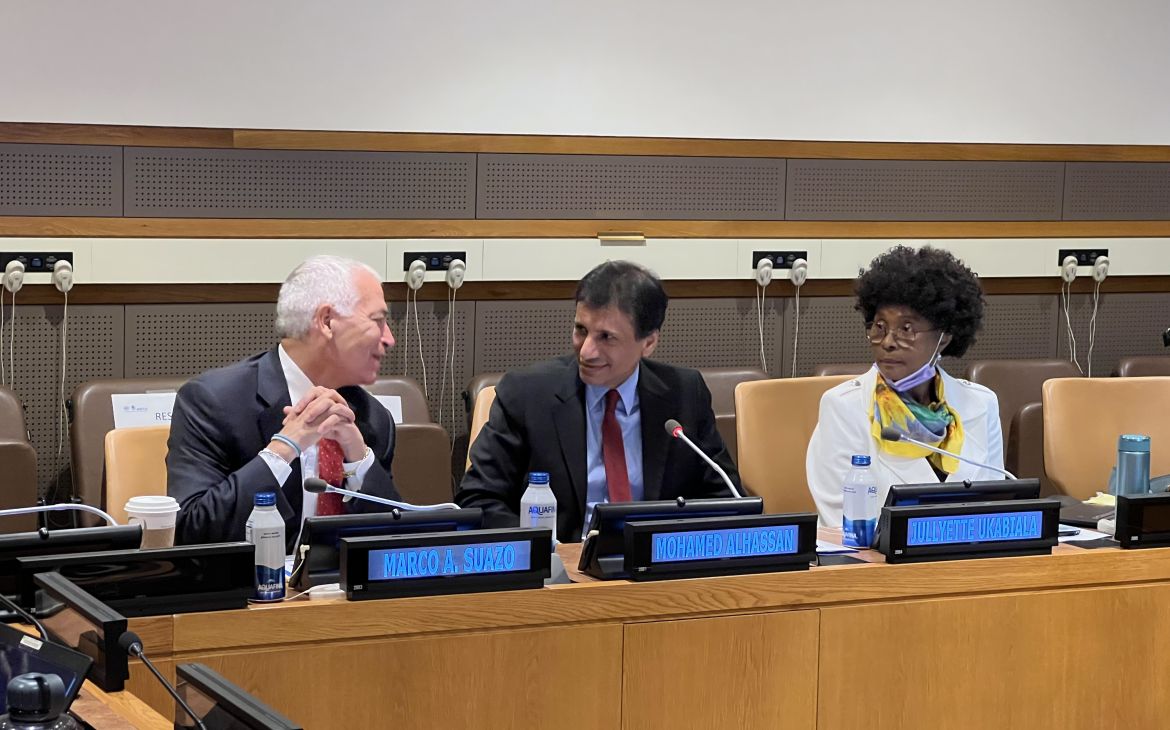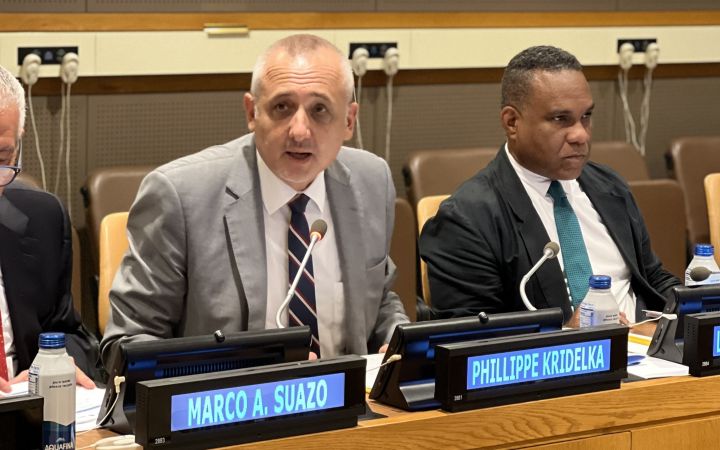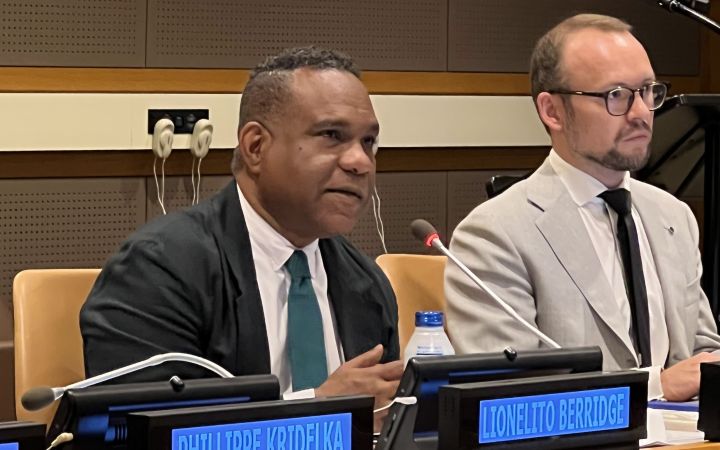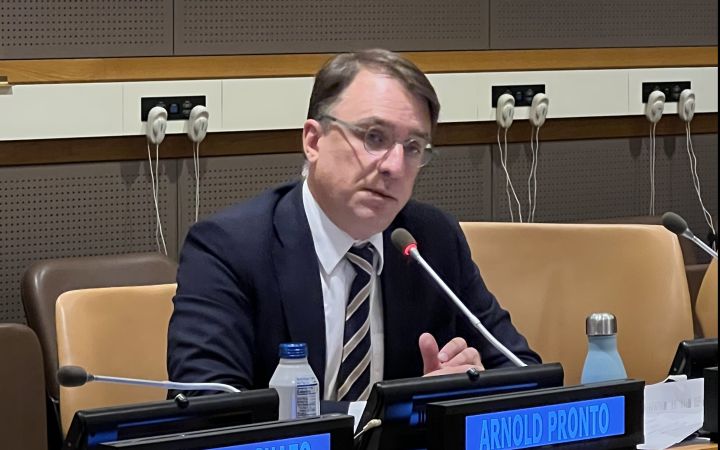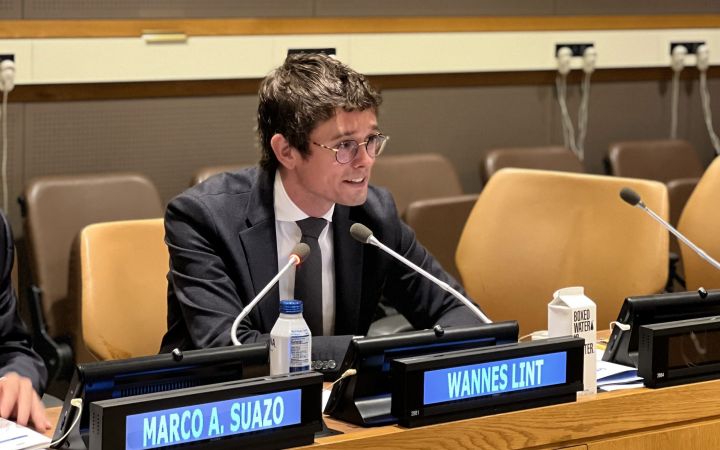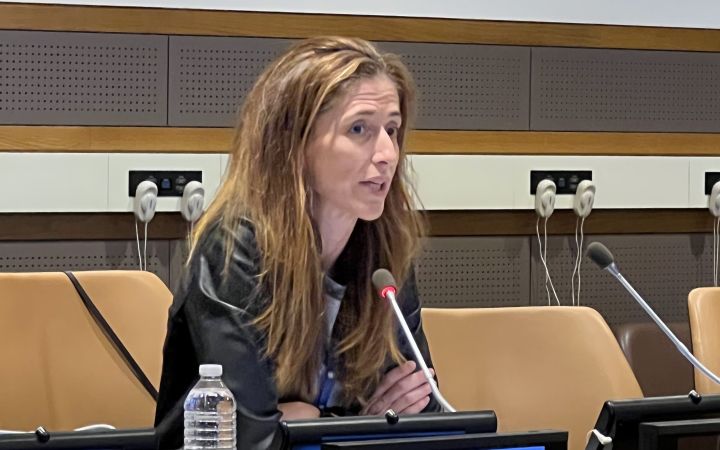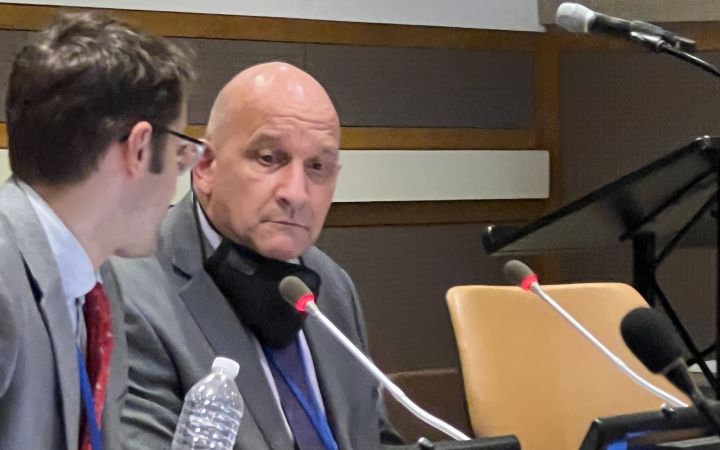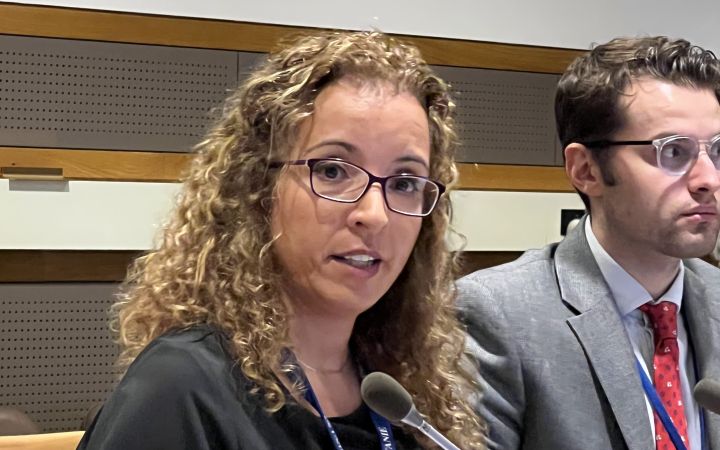12-13 September 2022, New York, USA - The United Nations Institute for Training and Research (UNITAR) office in New York, in partnership with the Permanent Mission of the Republic of Singapore to the United Nations as Chair of the Forum of Small States (FOSS), concluded a two-day course entitled “Briefing New Delegates on the Work of the 77th General Assembly” with approximately 170 participants attending in-person and over video conference. Mr. Marco A. Suazo, Head of UNITAR office in New York, Highlighted the message of the General Assembly and how important it is to deliver it. He then welcomed Mr. Nikhil Seth, United Nations Assistant Secretary-General, Executive Director of UNITAR, for his remarks.
Opening Remarks
Mr. Seth welcomed all delegates. He talked about working for peace and prosperity. Working towards consensus, durability and sustainability often depends on the diversity of people around you, Mr. Seth said. He discussed his previous experience and knowledge in the General Assembly and advised delegates to accommodate other points of view. As the United Nations is now back in-person, Mr. Seth was happy to see everyone via VTC filling the conference room. Mr. Seth spoke about the importance of education and UNITAR’s commitment to providing it to everyone across the world. Mr. Seth then gave the floor to H.E. Mr. Burhan Gafoor, Permanent Representative of the Republic of Singapore to the United Nations.
Mr. Gafoor thanked Mr. Seth and welcomed H.E. Mr. Csaba Korosi, President of the 77th General Assembly, acknowledged Ms. Ruth de Miranda, Director of the General Assembly and ECOSOC Affairs Division in the Department for the General Assembly and Conference Management, Mr. Marco Suazo, Head of the UNITAR New York Office, permanent representatives, and delegates. He mentioned how multilateralism is under pressure and being tested and issues, such as climate change, ocean, outer or inner space and others, can be solved if we work together. Mr. Gafoor advised the delegates to keep an open mind and understand the position of the other countries, needs, and look for mutual benefit solutions and live with compromises.
H.E. Mr. Csaba Kőrösi, President-elect of the 77th Session of the General Assembly, welcomed all and talked about the importance of following protocol, rules and procedures by the book and making the most use of technical services. He advised delegates to let inspiration drive them. Mr. Kőrösi mentioned his team’s determination to tackle issues related to climate change and to implement Agenda 2030.
Ms. Ruth de Miranda, Director, General Assembly and ECOSOC Affairs Division, took over and gave a brief overview of the work of the GAEAD, responsibilities and what the department provides. She explained what the technical secretariat services are and who supports the secretariat and assists the delegates.
Know-How of the United Nations
Mr. Kenji Nakano, Chief, General Assembly Affairs Branch, gave a brief overview of the 77th session of the General Assembly where he discussed in detail the rules of procedures of the General Assembly, and where to find the agenda items. He went through the opening session in detail: how it’s organized, what kind of agenda items are discussed, and when the high-level week takes place. Mr. Nakano went through other meetings mandated by the General Assembly and talked about terminologies used and when to use them. Q&A session took place towards the end of the session.
Ms. Tomoko Iwata, Secretary of the Credentials Committee and Legal Officer at the Secretariat talked about protocol and liaison service and rules and procedures during the 77th session of the General Assembly. She provided a brief background on the office of legal affairs. Ms. Iwata also talked about credentials, agenda and the role of the committee. Moving toward the end of the session, a Q&A session took place.
Ms. Beatrix Kania, Director, Chief of Protocol, briefly discussed access management and talked about bilateral meetings, and described meeting booths in the General Assembly. She discussed the principles that should guide the delegates in determining the order of precedence and simple order of precedence amongst the UN organizations. Closing remarks by Mr. Suazo, concluded today’s session, thanked all those who attended, and was looking forward to the afternoon session.
Work of the Main Committees
Session II opened with H.E. Mr. Maghzan Ilyassov, Incoming Chair of the First Committee and Permanent Representative of the Republic of Kazakhstan to the United Nations, and he spoke about the role of the First Committee in Disarmament and International Security. Ms. Sonia Elliot, Secretary of the First Committee, Chief of the Disarmament and Peace Affairs Branch, DGACM, took the floor speaking about the programme of work of the First Committee and explained the divisions in the work of the Committee. She also discussed the voting procedure of the Committee.
Multiple speakers then took floor in session II discussing the work of the Second Committee and the Relationship of the ECOSOC to the GA. H.E. Ms. Lachezara Stoeva, Incoming Chair of the Second Committee and Permanent Representative of the Republic of Bulgaria to the United Nations, took the floor discussing the Committee’s working methods to achieve its goals along with making a clear link between drafting resolutions and content and the implementation of the Agenda 2030.
Session II continued with the work of the Third Committee, with H.E. Mr. Jose Alfonso Blanco Conde, Incoming Chair of the Third Committee and Permanent Representative of the Dominican Republic to the United Nations. He spoke about the social, humanitarian and cultural segments of the Third Committee.
Ms. Marion Barthelemy, Director Chief of Intergovernmental Support and Coordination for Sustainable Development, Department of Economic and Social Affairs. She discussed the Committee’s methods of work. Ms. Emer Herity, Secretary of ECOSOC, ECOSOC Affairs Branch, General Assembly and ECOSOC Affairs Division Department for General Assembly and Conference Management, discussed organizational and procedural matters. She briefly explained the programme of work and phases of the Second Committee of the GA. She also explained how to use the e-deleGATE platform and ended the session with a Q&A with the new delegates.
Afterward, Mr. Ziad Mahmassani, Secretary of the Third Committee and Senior Intergovernmental Affairs Officer took the floor speaking about the programme of work of the Third Committee and explained the divisions in the work of the Committee. After Mr. Mahmassani ended his discussion, the first day came to an end.
Second Day of the Briefing for New Delegates
The second day of the training continued at 10:00 am (EST) on September 13th with a more detailed overview of the 77th session of the General Assembly and Main Committees. After Mr. Suazo welcomed the participants in joining the second day, he introduced the first speaker H.E. Mr. Mohamed Al Hassan, Incoming Chair of the Fourth Committee and Permanent Representative of the Sultanate of Oman to the United Nations to the session. H.E. Mr. Mohamed Alhassan gave an insight of working methods along with the programme content of the Fourth Committee. Some covered topics include decolonization, Palestinian refugees, effects of atomic radiation and international cooperation, to name a few. Mr. Alhassan also explained the historical context of the Fourth Committee: the committee was first created with the purpose of offering trusteeship and encouraging decolonization. The session moved on to the second speaker, Ms. Jullyette Ukabiala, Secretary of the Fourth Committee and Senior Intergovernmental Affairs Officer. She explained the allocation of agenda items and put the emphasis on practicing statement delivery in a limited timeframe. She also encouraged new delegates to consult the e-deleGATE online platform to review available resources related to draft proposal submission for instance.
The second session ended with Mr Arnold Pronto, Principal Legal Officer from the Codification Division of the Office of Legal Affairs, who mainly explained the various topics which the Sixth Committee focuses on including terrorism, crimes committed by peacekeepers and diplomatic protection to name a few. He also emphasized the importance of taking advantage of the e-deleGATE online platform to consult relevant resources.
Interaction of the General Assembly with UN Bodies and Elections
The third session began with Mr. Wannes Lint, Intergovernmental affairs Officer from the General Assembly Affairs Branchwho described the election process at the UN by giving an overview of the different UN organs. He also explained how the General Assembly’s universal nature makes it the central point of voting. He then discussed the decision-making procedure, including budget-related decisions. He emphasized on the importance of using the right language to ensure recommendations are accepted during negotiations. He provided practical tips to delegates regarding the appropriate use of language.
The third session continued with Ms. Blanca Montejo, Senior Political Affairs Officer in the Security Council Practices and Charter Research Branch of the Security Council Affairs Division (SCAD) who explained the differences between the General Assembly and the Security Council and also the areas on which both collaborate with each other. Those areas include peace and security issues, appointments and elections, annual notifications and special reports, working methods and peace-building.
Ms. Micaela Becquart, Interpreter in the Spanish Section from the Interpretation Service at the Department for General Assembly and Conference Management and Ms. Lana Ayyad, Chief of Arabic Interpretation Section, have both shared document and statement related tips to ensure accurate interpretation during conferences. They have also reviewed the microphone, surrounding and camera requirements with the delegates.
Ms. Susan Goard, Law Librarian/Training Coordinator at the Dag Hammarskjold Library, explained the process to access the UN Docs Database and Library Collections and receive the UN Library services. Mr. Dawa Sangey, Senior Documentation Officer from the Documentation Management Section, shared the basic principles and policies related to documentation and the search process. The briefing on the 77th Session of the General Assembly ended with Ms. Meena Sur, Project Manager, Journal, who explained how to access the Journal of the United Nations and upload documents. The Journal Twitter account has a strong following base (68.5 K followers).


